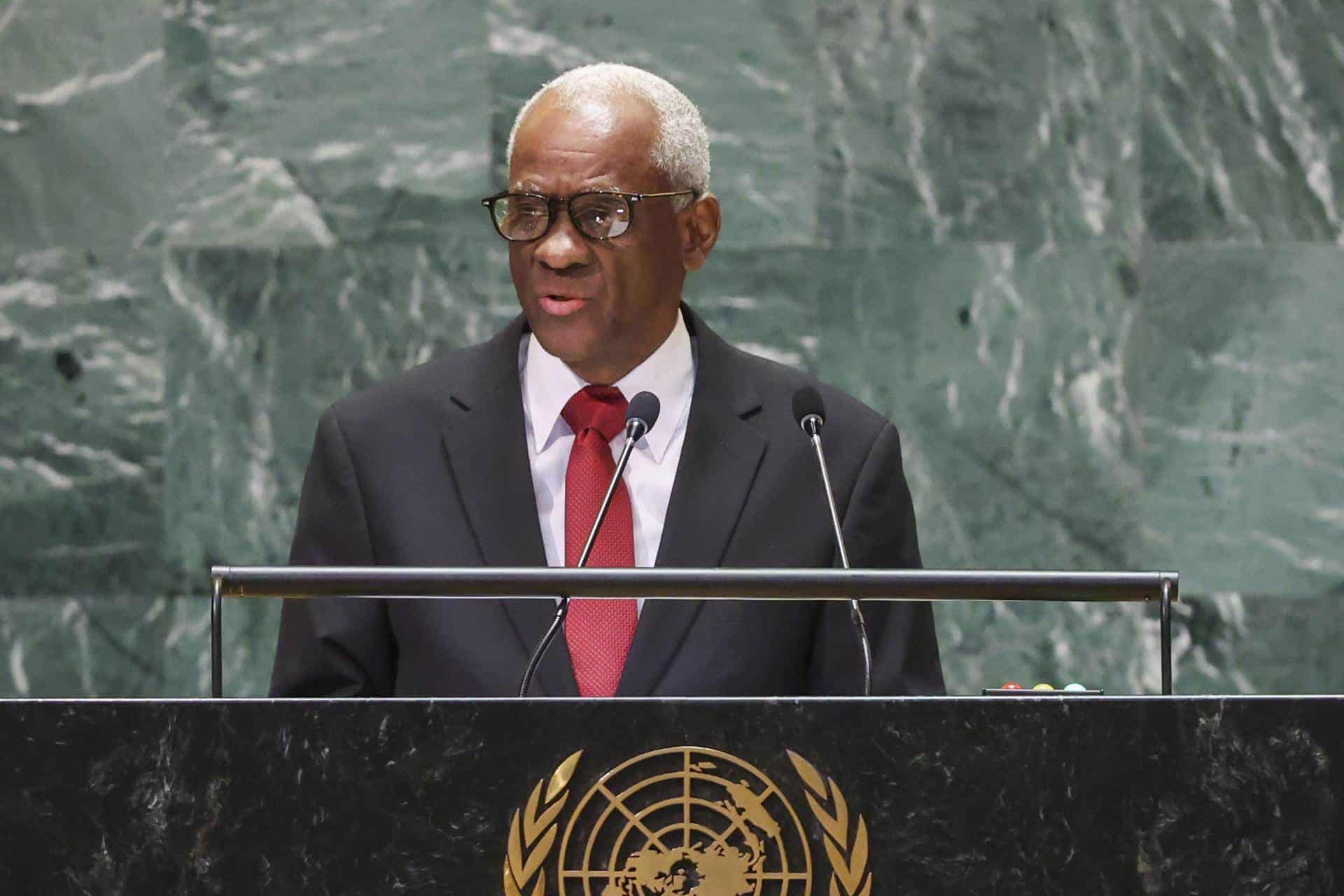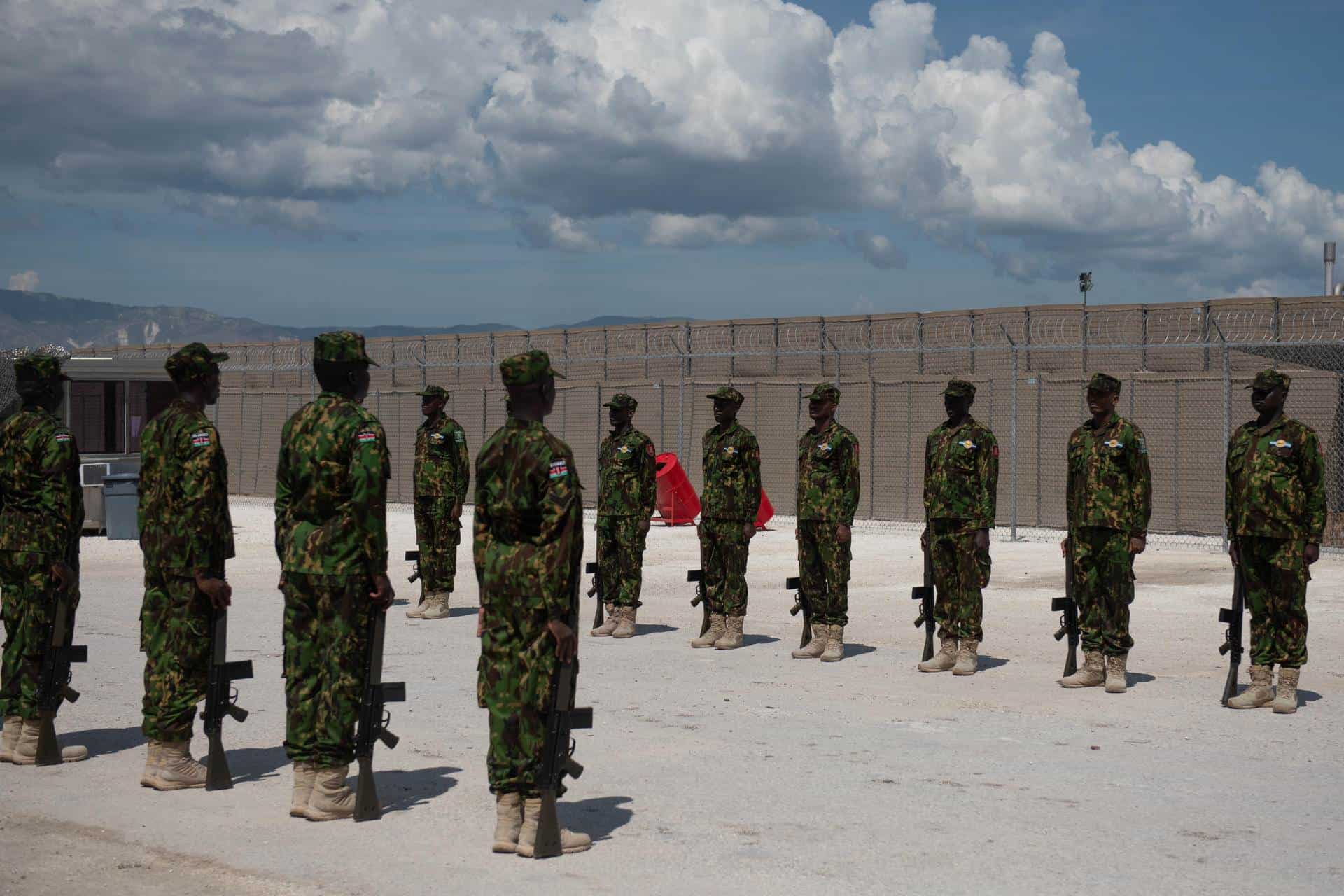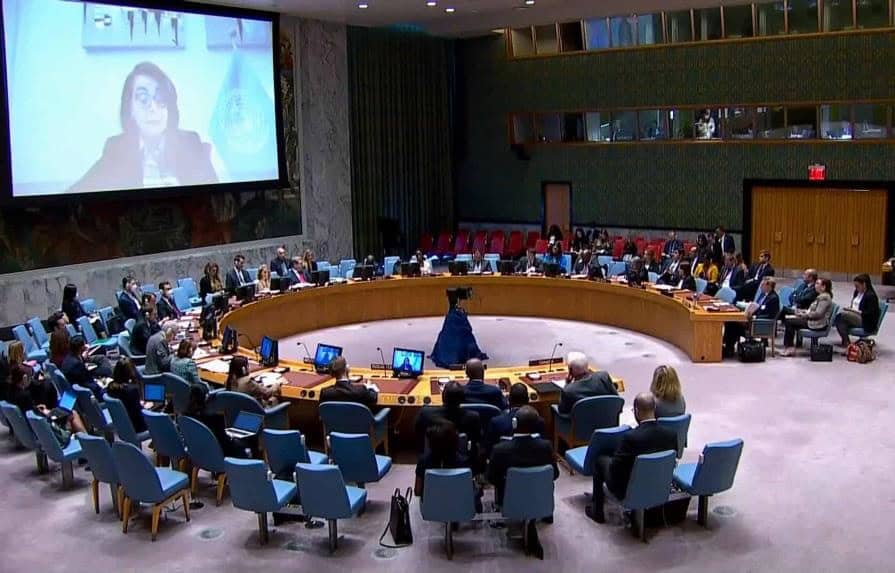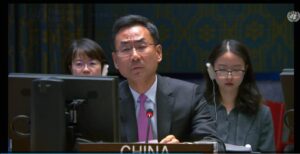
This Monday it is expected that the Security Council of the United Nations to vote on a draft resolution that renews for one year the authorization for Member States to deploy a Multinational Security Support (MSS) mission in Haiti to help restore security in the country and create conditions conducive to the holding free and fair elections.
The mission was deployed in a context of rampant gang violence in the country. In October 2022 the Haitian government called for the immediate deployment of a “specialized international force” to temporarily reinforce the efforts of the Haitian National Police (PNH) to combat gangs.
At that time, the UN Secretary General, António Guterres, supported the request, although the UN would not manage mission proposal. In July 2023, ten months after Haiti’s initial request, Kenya agreed to lead a multinational force and committed to deploying 1,000 police officers.
Although the UN would not administer the proposed mission, Kenya, Haiti and other interested parties requested authorization from the Security Council for deployment. On October 2, 2023, the Council adopted the resolution 2699, which authorized Member States to form and deploy the MSS mission in Haiti. The resolution tasked the mission to provide operational support to the PNH to combat gangs (including by building its capacity through planning and conducting joint security support operations) and to support the PNH in protecting critical infrastructure sites.
There are currently 400 Kenyan agents in Haiti.
The resolution authorized the mission for an initial period of 12 months, which would be reviewed after nine months. He specified that the cost of the operation would be met by voluntary contributions and support from individual countries and regional organizations. During the talks of the resolution 2699Ecuador and the US had initially tried to include language about the possible transformation of the mission in one operation of peace of the UNwhich would be financed through assessed contributions from member states, but this was not included in the final text due to opposition from China and Russiawhich referred to the checkered history of the maintenance operations of the peace of the UN in Haiti and argued that the country’s political and security conditions were not conducive to a new operation. Subsequent evaluations and media reports indicated that the mission MSS It would comprise up to 2,500 officers, deployed in phases, at an annual cost of approximately $600 million.
The mission It was initially scheduled to deploy in February, but that deadline was repeatedly postponed for various reasons, including lack of funding, a court challenge in Kenya and, most recently, an increase in violence by the gangs in Haiti, which promoted the Caribbean Community (Caricom) to facilitate an agreement among Haitian stakeholders on a political transition to stabilize the country’s security situation and restore democratic governance. Subsequently, in June and July 2024, Kenya deployed the first two contingents of the missionwith a total of approximately 400 police officers, and the remaining 600 officers he promised were expected to deploy in the next two months. On September 12, the first Caribbean contingent arrived, consisting of 24 military and police officers from Jamaica and two military officers from Belize.
Successes of the mission and need for support
According to press reports, the mission of the MSS has helped the PNH to achieve some success in the recovery of neighborhoods in Port-au-Prince that were previously under the control of the bands. However, it continues to lack resources and faces funding and equipment shortfalls that limit its ability to increase its presence physics and take and hold territory beyond the capital. In accordance with the resolution 2699in which the Secretary General to make recommendations on possible adaptations to the mandate of the mission of the MSS Within nine months, the most recent report of the Secretary General about the Integrated Office of the Nations United in Haiti (BINUH), dated June 27, said that the mandate of the mission “remains valid and will continue to be necessary” beyond its current expiration date (October 2), as Haiti continues to prepare to celebrate elections. However, the report warned that the financial contributions and pledges made by the mission had received to date were still insufficient so that the mission could meet its budgetary and operational needs and ensure its presence during Haiti’s political transition.
On September 5, the Secretary of State for States JoinedAntony Blinken, visited Haiti, where he met with Haitian interim Prime Minister Garry Conille and the Advice Presidential Transition (CTP) of the country. In a press conference, Blinken confirmed that States Joined would seek to renew the authorization of the Advice of Security for the mission MSSbut also recognized the need for more sustainable funding and additional staff, noting that a operation of peace of the UN would be an “option” to achieve those objectives.

Similarly, in his statement on September 26 at the general debate of the 79th session of the Assembly General of the UNthe president of the CTP, Edgard Leblanc Fils, asked the international community to convert the mission MSS in one operation of peace of the UN“which would ensure more stable financing and expand the capabilities of the mission“.
Negotiations on the project resolution
The talks to renew the authorization of the mission of the MSS were long and “apparently difficult.” The editors circulated an initial draft of the resolution on September 6 and held informal consultations that same day to present the text. Ecuador and the States Joined They then called the first round of talks on September 9 and circulated a revised draft on September 11. On September 12, the editors called the second round of talksafter which they circulated a second revised draft and subjected it to a silence procedure, which China and Russia They broke up. Later, Ecuador and the States Joined They circulated three other revised drafts under gag procedures, all of which were again broken by China and Russia. On September 28, the editors placed a sixth draft reviewed directly in blue.

It would extend mission until 2025
The project of resolution in blue decides to extend the mandate of the mission of the MSSas currently authorized in the resolution 2699until October 2, 2025. Encourages the mission to accelerate its deployment and to the international community to provide additional voluntary contributions. It also reaffirms that the general secretary The UN can provide logistical support packages to the missionupon request, subject to full financial reimbursement by the Nations United through voluntary contributions and in accordance with the Human Rights Due Diligence Policy of the Nations United. “During the talksit appears that the provisions relating to the renewal of the mission of the MSS They themselves were not particularly controversial and did not face significant opposition from any member of the Advice”said a source.
However, the language regarding the possible transformation of the mission in one operation of peace of the Nations United was more controversial, which complicated the talks. “It appears that the initial draft that circulated among the editors included an operative paragraph that asked the Nations United to ‘begin planning the transition’ of the mission MSS to one operation maintenance of the peace of the Nations United ‘in order to maintain the achievements made by the mission MSS’. China and Russia They apparently opposed this provision, reiterating their position that conditions on the ground in Haiti were not conducive to maintaining the peace of the Nations United and arguing that mission MSS should reach full operational capacity before discussing such a transformation,” the source added.
However, the drafters maintained the essence of this paragraph in the first and second revised drafts, leading to China and Russia to break the silence.

In the third revised draft, the drafters apparently modified the paragraph to express the “intent of the Advice to consider” a operation maintenance of the peace of the Nations Unitedbut China and Russia They broke the silence again for the same reasons as before. This was presumably also the case with the fourth revised draft, which amended “operation maintenance of the peace of the Nations United” by “operation of peace of the Nations United” (a term that covers both the maintenance operations of the peace such as special political missions), but otherwise remained the same.
In the fifth revised draft, it appears that the drafters replaced the disputed operative paragraph with a new preambular paragraph that recognizes Haiti’s call in the Assembly General of the Nations United to transform the MSS in one operation of peace of the Nations United. However, China and Russia They also broke the silence on this wording. Consequently, the project resolution in blue does not contain any reference to a operation of peace of the Nations United.



